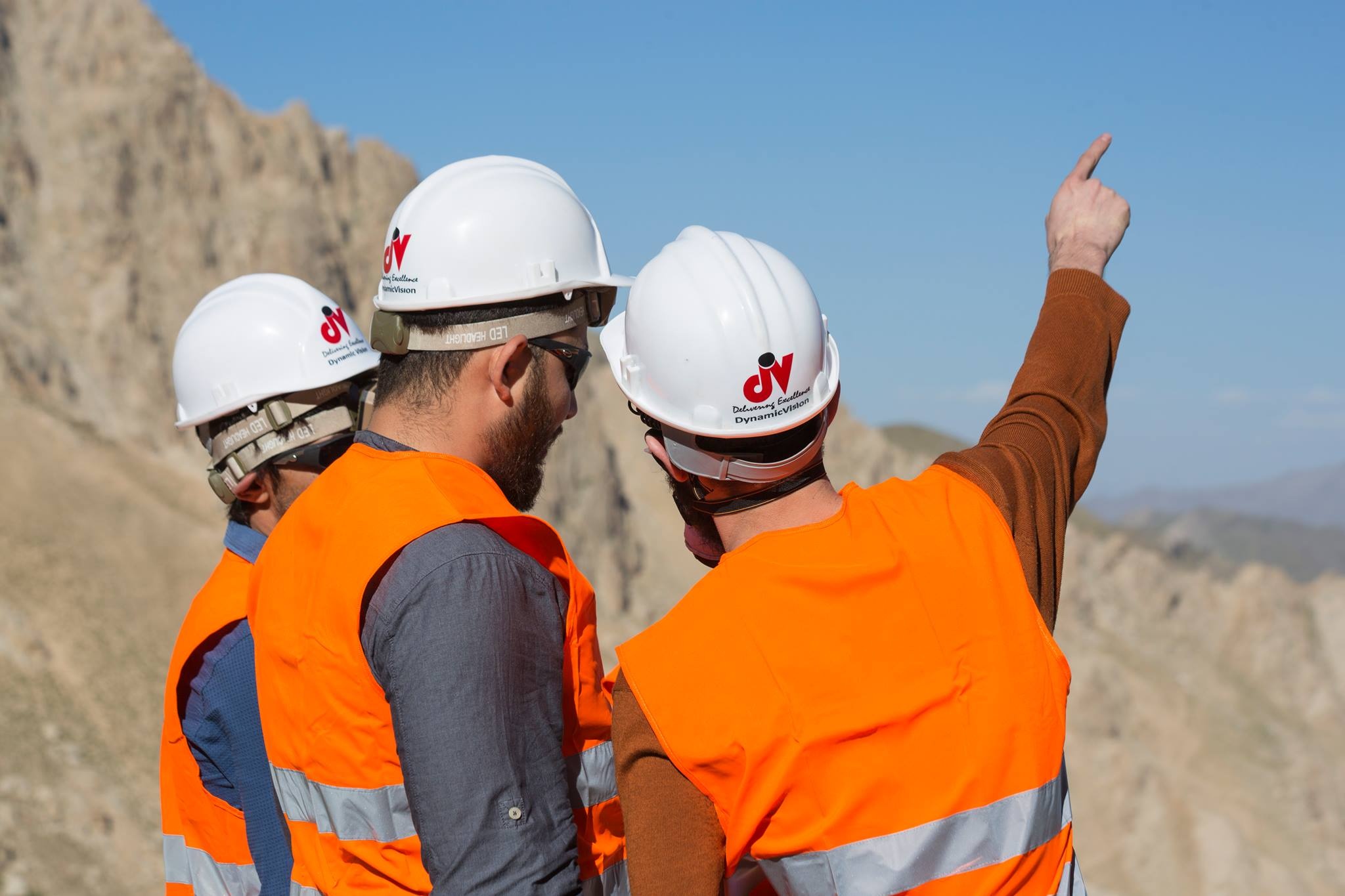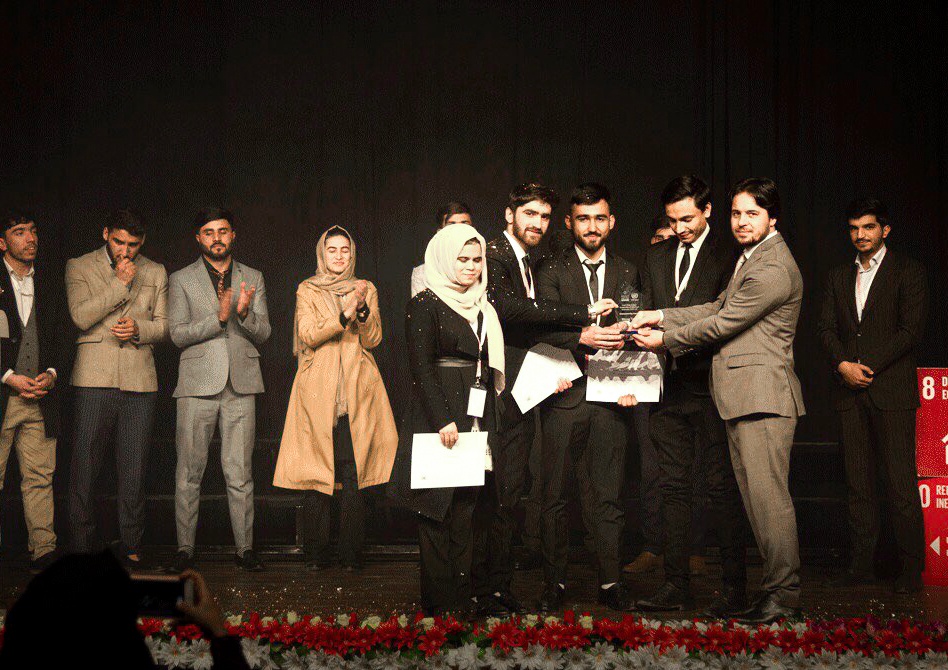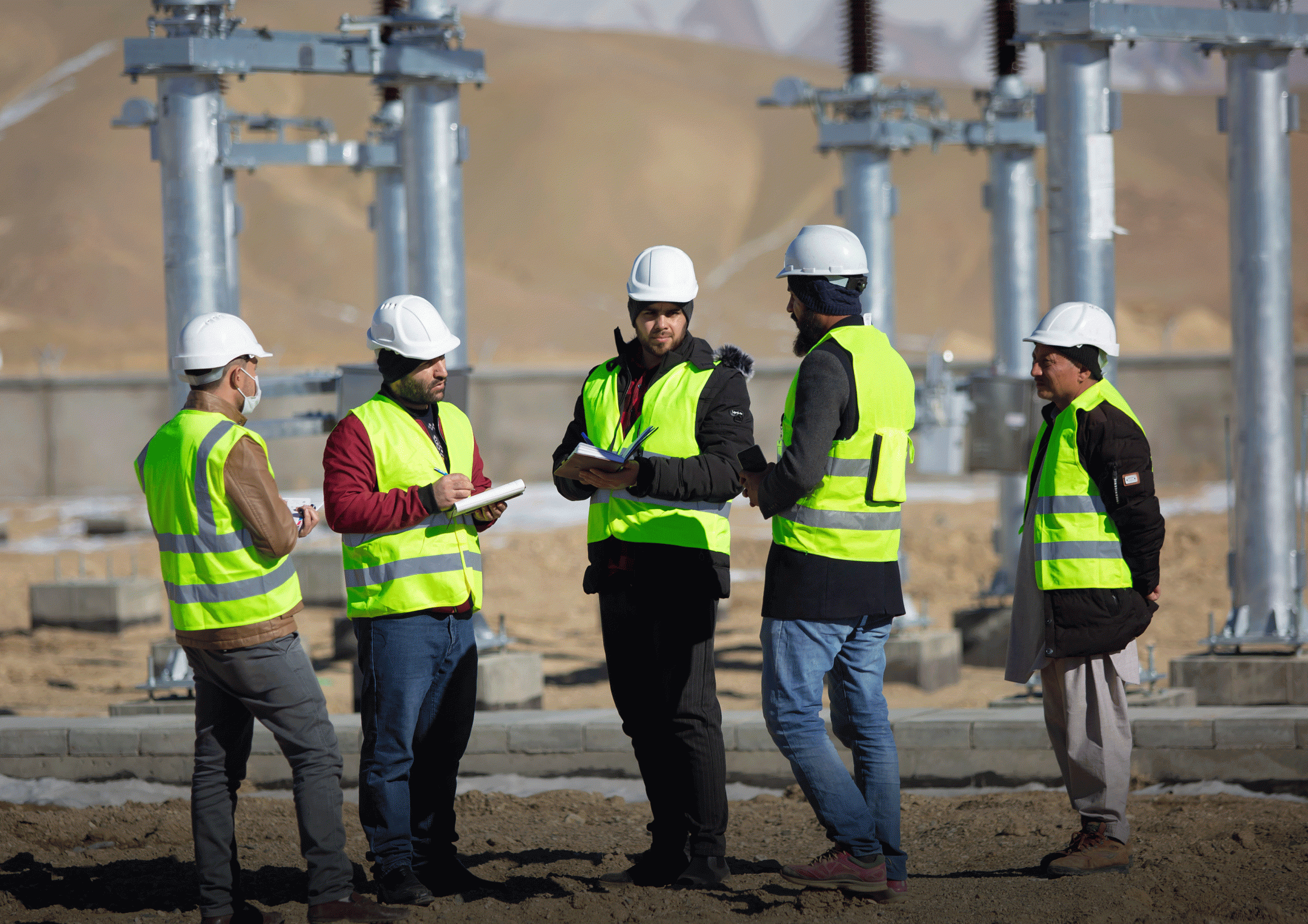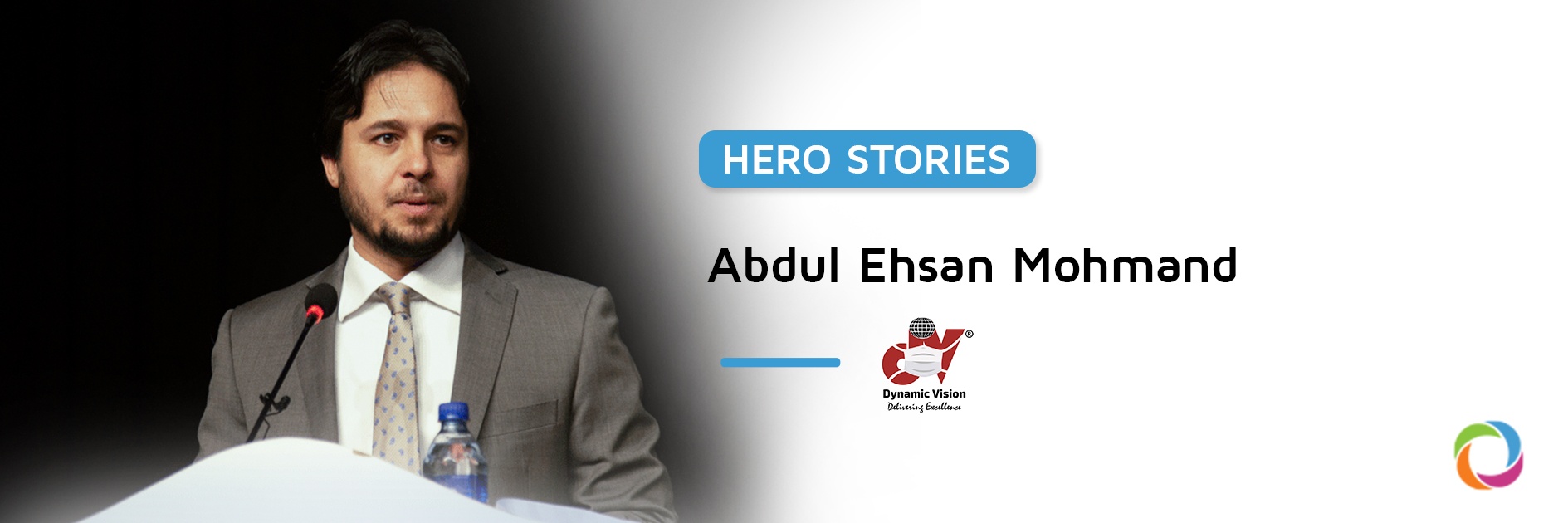When Ehsan Mohmand accepted our invitation for an interview, we prepared ourselves for a difficult discussion about the harsh and dramatic environment of the Afghanistan development landscape. We knew that the situation on the ground was changing rapidly due to the continuous offensive of the insurgents and that there were multiple challenges for humanitarian and development workers because of the ongoing conflict. Our conversation with one of the most successful CEOs in the Afghanistan development sector revealed the difficulties faced by implementers and the ways to make development happen.
Today’s Hero Story is about Ehsan Mohmand, CEO of Dynamic Vision of Kabul in Afghanistan.
Ehsan’s family migrated to Pakistan when the Soviet-Afghan war erupted in late 1979. In Pakistan, young Ehsan attended school, college, and then the University of Peshawar where he graduated with an MBA. In 2005, the family returned to Kabul and Ehsan began his career in the development sector, firstly with the Afghanistan International Chamber of Commerce followed by the Louis Berger Group and a long list of national and international bodies.

In 2012, Ehsan took the role of Chief Executive Officer at Dynamic Vision, a company incorporated in 2006 by his father, and proceeded to implement more than 250 development projects (!) at both national and regional level in Afghanistan.
Naturally, we were eager to find out about the current situation within the country bearing in mind that the Taliban fighters (also called ‘insurgents’ – editor’s note) have gained control over the majority of the 34 provinces and several big cities – economic and political centers. We asked Ehsan for his perspective of the situation and found that, despite the dramatic development of events, Ehsan was optimistic.
“We are among the very few companies that are operating at full potential. Our business is going well, we have projects in the pipeline. Our network comprises 12 regional offices in 12 provinces. Our head office is in the capital city of Kabul and the day before yesterday we had all our windows blown out by a very ugly blast that occurred outside”.
For the majority of our readers, and for us as well, experience an explosion that could blow out the office windows sounds like it might be the end of the world. But not for Ehsan.
“Our offices in the regions are staffed and operational except the one in Herat (the third-largest city in Afghanistan – editor’s note). During the last few weeks, the situation in this city has worsened. You won’t believe it, but our provincial manager in Herat is a woman (Ehsan smiles). Currently, she manages three projects in the province. A couple of days ago she asked for permission to move the documents from the office to her house because of the worsening situation. We have advised our Herat team to stay at home, for security reasons, until the situation improves. So, except for Herat, all the offices in the remaining provinces are open and operating.”
Bearing in mind Dynamic Vision’s activity in the field, we asked about the structure and number of its employees and the role played by women.
“Currently we employ around 220 people on our permanent payroll. Another 500 employees are project-based, hired for certain project activities. In our main office, we have 18 women working. Our Herat province manager is not the only woman who takes decisions. One of the projects we implemented was very tough – the monitoring and evaluation of capacity building for Afghanistan women-prison inmates. With a very difficult target group of beneficiaries, no one from the team wanted to take on this project except one woman who accepted the challenge. She did an outstanding job and achieved great results. There are not so many companies who accept women in leading roles in our country.
Almost 90% of our employees are locals while 10% are international experts and consultants. We need their expertise for certain critical feasibility and pre-feasibility studies. We have people from Australia, the US, EU, Pakistan, India, and other countries working with us.”

What about their security? – we asked. Again, the international media is overwhelmed with news about insurgents kidnapping workers, intimidating, and even killing locals and foreigners. We were about to learn one of the company’s risk mitigation strategies.
“Most of the time we involve local communities in our activities. This makes it easier for us to mitigate the security risks. Traditionally, the white beards, the influential people – the elders, are well respected. So, if one has their support, then it is much easier to work in the region. But one should make certain that the work that is done is not against the community.
Another key aspect is not to show too much difference from the locals. For example, recently we were submitting a joint bid with Chemonics International, with whom we partner on some projects. Based on their due diligence, they would use our premises and our offices in the provinces because they were safe. We keep our offices low-profile, avoid using big armored vehicles, and having armed guards. Communities do not accept it when one appears to be superior, sitting in an armored vehicle while visiting them. This makes one look like a stranger, someone who is not a part of them. We are part of the community – when in Rome, do as the Romans do. This is the approach we follow.”
Ehsan says that he would never send an outsider to deal with issues in a different province. The company selects people from a particular region thus turning the locals into supporters. This lowers the risk for Ehsan’s employees.
Still, the insurgents have captured Dynamic Vision workers on several missions. Ehsan shares the memories with a smile because everything ended positively but it might have been different…
“During a feasibility study for a transmission line within an Asian Development Bank-financed project in the Ghazni province, one of our teams was captured by the Taliban. They had GPS, cameras, and other measurement equipment with them. If you are captured with something like that – the death sentence is almost certain. Luckily, we knew the community elders, with whom we had cooperated while building a school within a USAID-funded project. As soon as we lost communication with the team, we contacted the elders, learned about the team’s capture, asked them to negotiate our team’s safety, and sent another team to finish the work. But when our second team was captured in a different area in Paktika province, I got in touch with the community elders of Sharana because I used to work there. We identified the location of our team and established that they were safe. Our third team successfully completed the task and we got both of our captured teams back.”
We noticed that Ehsan mentioned the community elders being in contact with the insurgents and asked if he could elaborate on this.
“The insurgents are part of society. They can’t be separate because they are not from outside. There may be some fighters from neighboring countries but the rest are people from our country. They can’t disrespect the communities. Afghanistan is a very traditionalist country. One can’t walk through a community without first having an arrangement with them. Most of the people are armed and united. The communities are influential and without their support you cannot survive.”

The recent development of the situation in the country, including the decision of President Biden to withdraw US troops, will certainly have had an impact on the lives of the people. Without political stability and in a situation of high social unrest, international donors must act very carefully. Afghanistan is the biggest aid beneficiary in the world, receiving a little over US$3 billion last year alone. The insurgents’ advance will definitely have an impact on this.
“For us, the good news is that our business is diversified. We operate in the power and energy, health, educational and agricultural sectors. We are the second-largest media company in the country. When COVID-19 hit the country in 2020, most of the businesses would close but we continued to work, undertaking the third-party monitoring for the US$40m ADB grant to the Afghanistan Government. We are not dependent on one donor, on one client. We have seen hundreds of companies, with revenues of hundreds of millions generated from business with the US army, go out of business overnight because NATO and the US army left the country. These companies had no other jobs, no other projects. We work with KfW, GIZ, the World Bank, USAID, and also the Afghan government.”
However, Ehsan has noticed some “donor fatigue” with certain donors reducing their funding.
“It depends on the sector. For example, in the infrastructure sector, we anticipate a dramatic reduction of funds and projects. But there will be humanitarian projects, and those projects will need to be carried out, such as the “Cash for Work”, “Food for Work” initiatives. Development work in Afghanistan will never stop.”
Nonetheless, the lives of certain groups of people will become more complicated, Ehsan agrees.
“Many of those who worked with international donors were targeted by the insurgents. Most of the interpreters and technicians, for example, were threatened. These people are talented. They’ve got the knowledge, they speak foreign languages, they can offer a hand in the development of Afghanistan but, after receiving threats, they flee the country. This might slow down development.”
And yet, Ehsan maintains his optimism and focuses on the light at the end of the tunnel.
“The fact that my country has progressed over the past 20 years makes me optimistic. Over 14 million of our people have access to the internet and 10 million are connected to social media. Awareness among the communities is increasing. Back in the 1980s, we were isolated and not connected to the international sector. Now it’s different. People have developed and their mindsets have as well. No matter how hard it is for us during these insurgent attacks, they (the insurgents – editor’s note) cannot resist the force of 35 million people. If people stand their ground – the insurgents will not survive. Because we have another saying in the country: The power of the people is the power of God. If the people use their power, the insurgents will have to compromise.”
Note: The interview with Eshan Mohmand was recorded and edited before the latest events that occurred in Afghanistan in the week of August 8 – 15.

